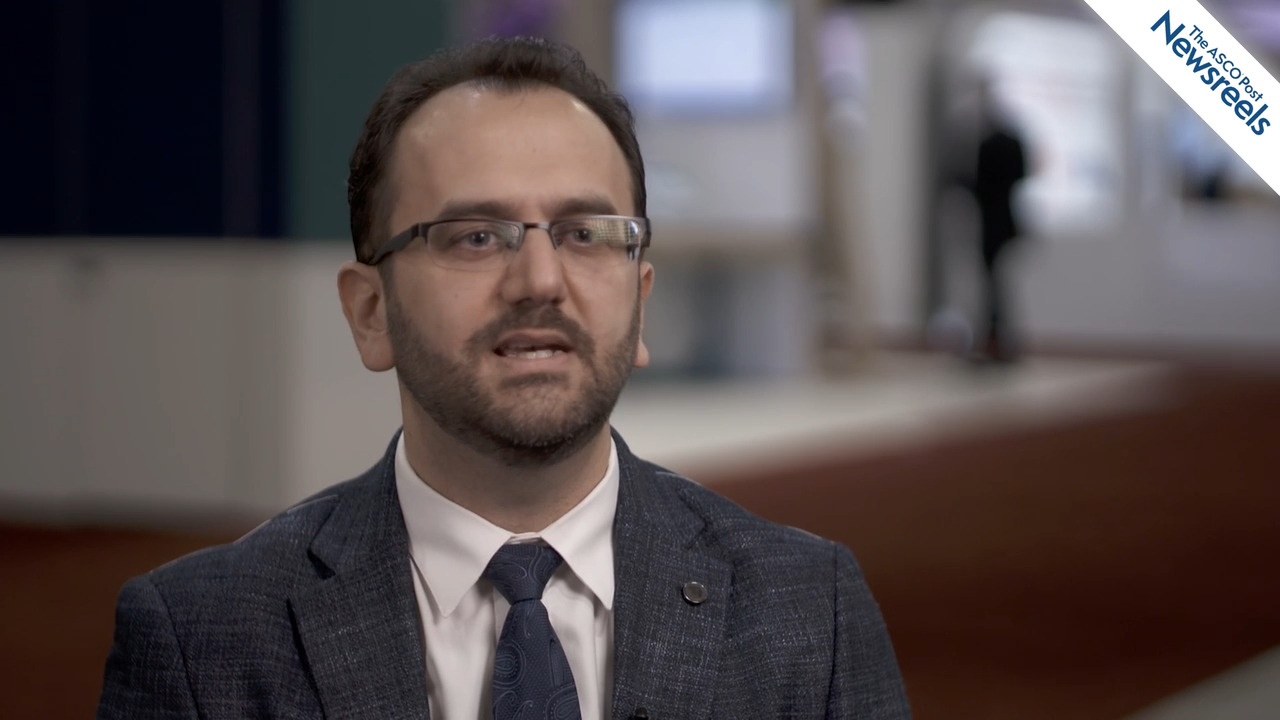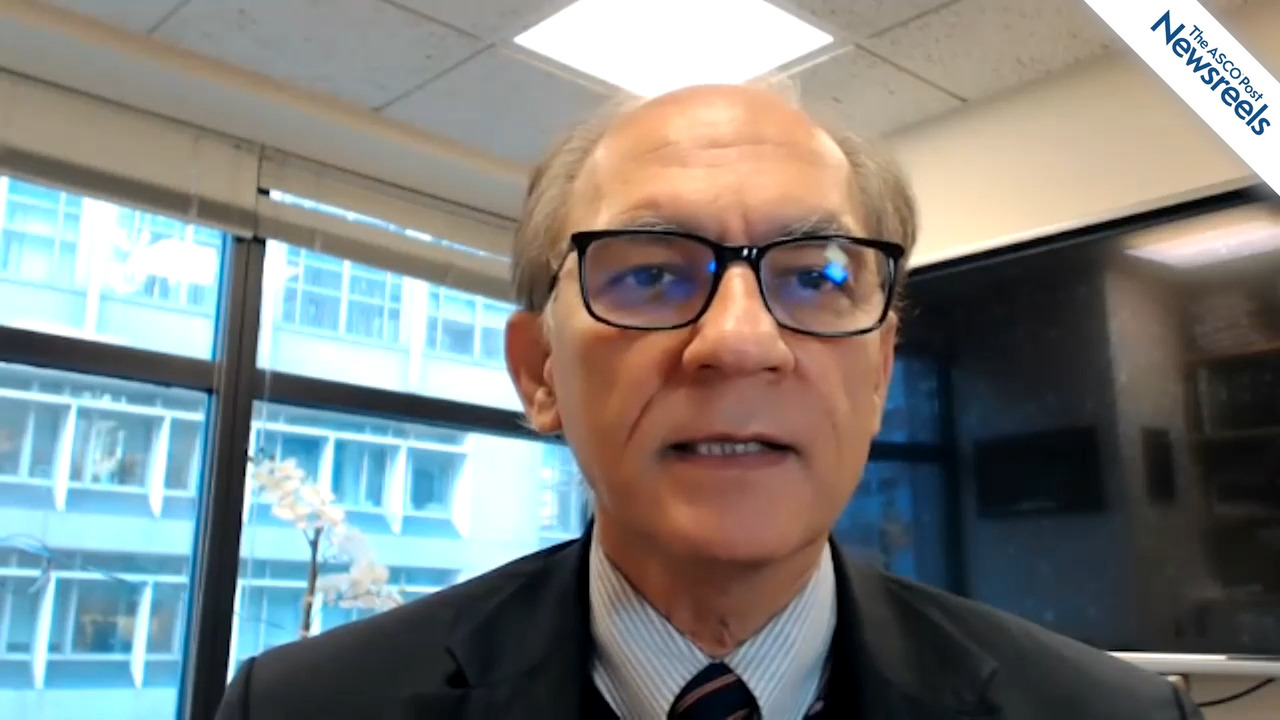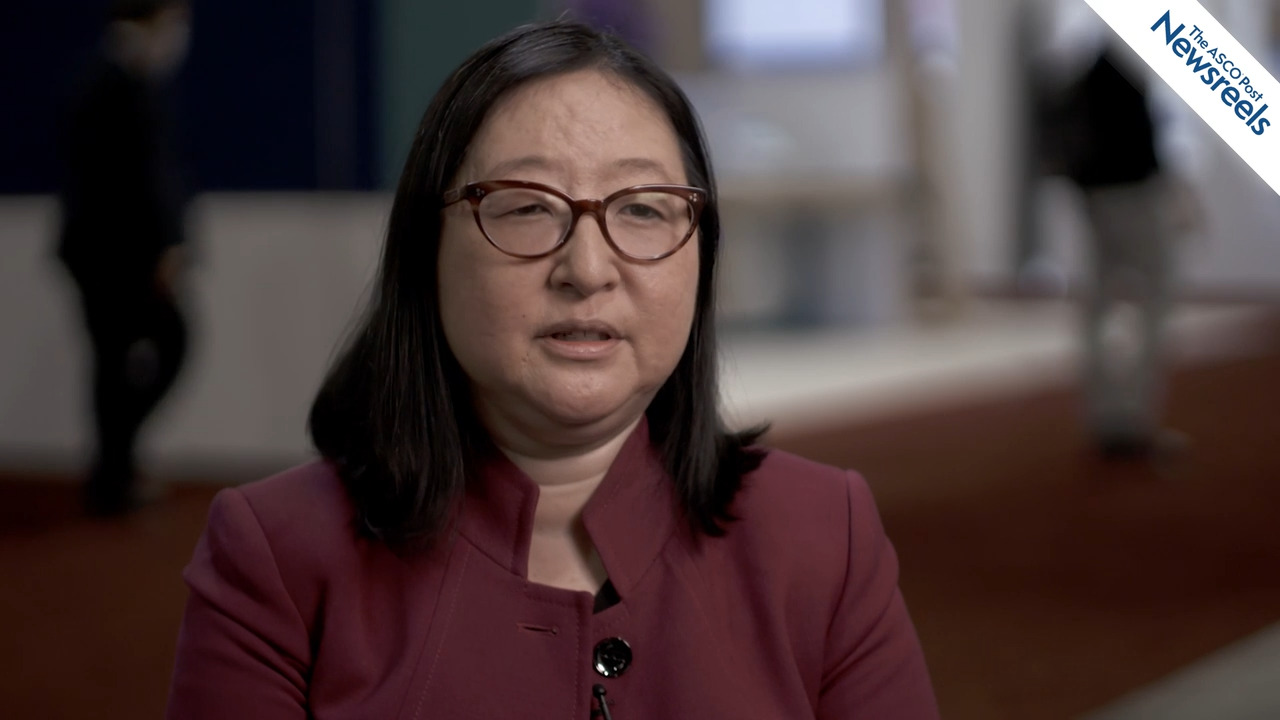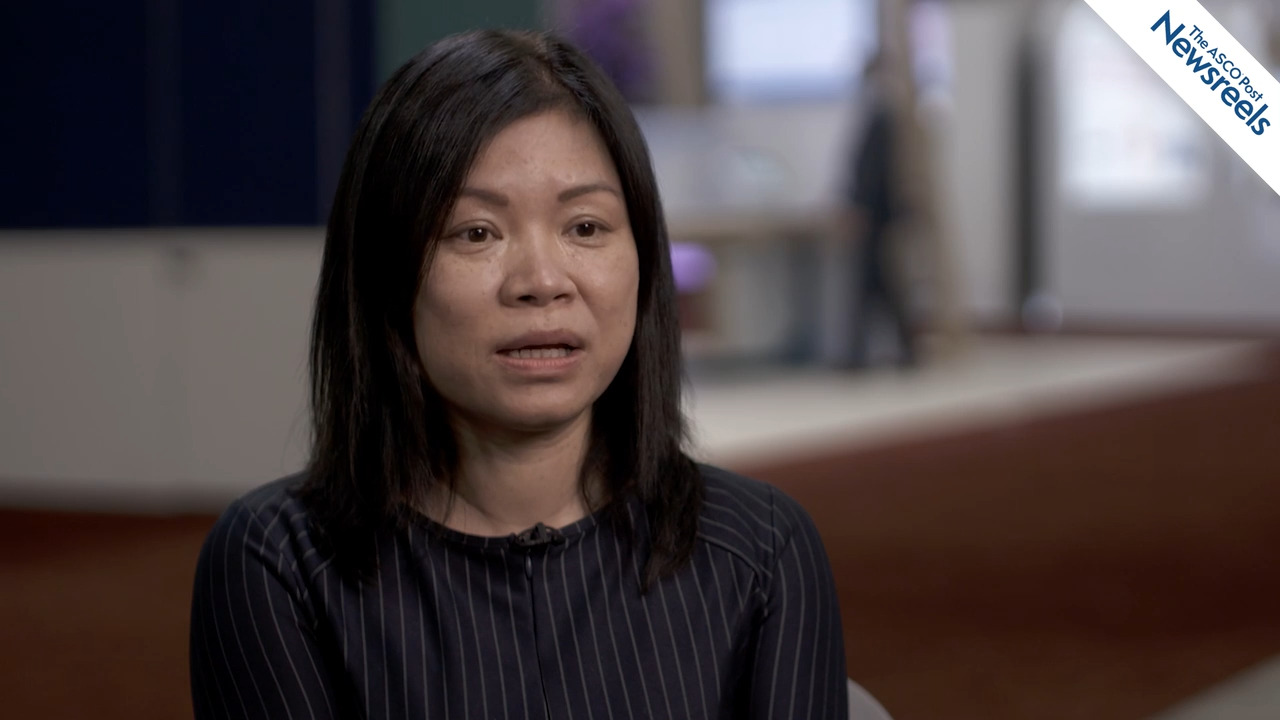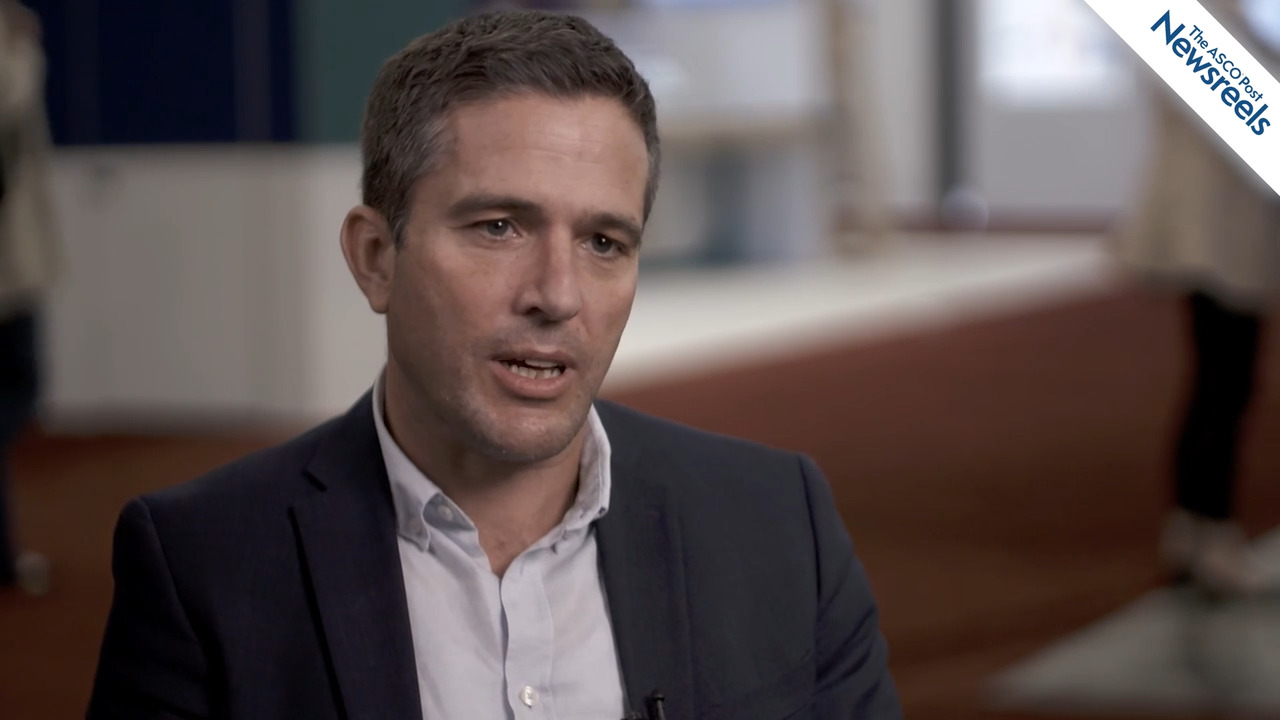Romanos Sklavenitis-Pistofidis, MD, on Smoldering Myeloma: Identifying Biomarkers of Response to Immunotherapy
2021 ASH Annual Meeting & Exposition
Romanos Sklavenitis-Pistofidis, MD, of Dana-Farber Cancer Institute, discusses study findings on a next generation of clinical assays to assess both tumor biology and immune state, as well as common clinical biomarkers in the marrow or blood. These biomarkers may accurately predict which patients with smoldering multiple myeloma might benefit from early treatment, monitor response to immunotherapy, and improve patient outcomes (Abstract 330).
The ASCO Post Staff
Musa Yilmaz, MD, of The University of Texas MD Anderson Cancer Center, discusses study results suggesting that quizartinib with decitabine and venetoclax is active in patients with FLT3-ITD–mutated acute myeloid leukemia and that RAS/MAPK mutations continue to drive primary and secondary resistance (Abstract 370).
The ASCO Post Staff
Nikhil C. Munshi, MD, PhD, of Dana-Farber Cancer Institute, discusses the findings from a large nationwide Veterans Affairs study, which showed that, for patients with multiple myeloma, the effectiveness of the COVID-19 vaccine is reduced, likely due to patients’ immunosuppression. Dr. Munshi describes what next steps should be taken (Abstract 400).
The ASCO Post Staff
Eunice S. Wang, MD, of Roswell Park Comprehensive Cancer Center, discusses phase III results showing that gilteritinib and azacitidine led to significantly higher composite complete response rates in patients with newly diagnosed FLT3-mutant acute myeloid leukemia who are ineligible for intensive induction chemotherapy. Overall survival was similar to that of azacitidine alone (Abstract 700).
The ASCO Post Staff
L. Elizabeth Budde, MD, PhD, of City of Hope, discusses phase I/II findings that showed mosunetuzumab monotherapy induces deep and durable remissions in patients with relapsed or refractory follicular lymphoma who have received two or more prior lines of treatment, including those with double-refractory disease. Because follicular lymphoma is associated with frequent relapses and decreasing progression-free intervals with successive lines of conventional therapy, these data are encouraging (Abstract 127).
The ASCO Post Staff
Carsten Utoft Niemann, MD, PhD, of Copenhagen University Hospital, discusses a primary analysis of the phase II Vision HO141 trial, which showed the feasibility of stopping and restarting ibrutinib and venetoclax in patients with relapsed or refractory chronic lymphocytic leukemia who have undetectable measurable residual disease. A favorable benefit-risk profile was demonstrated, with no new safety signals (Abstract 69).
